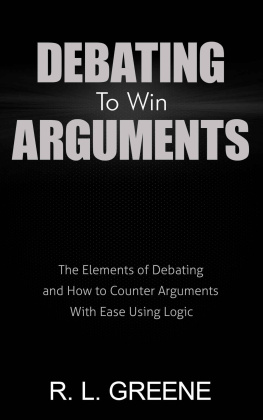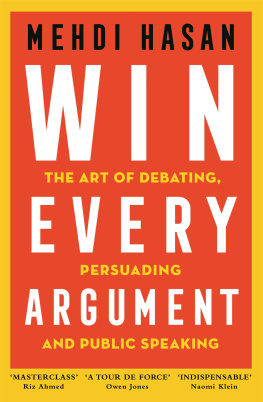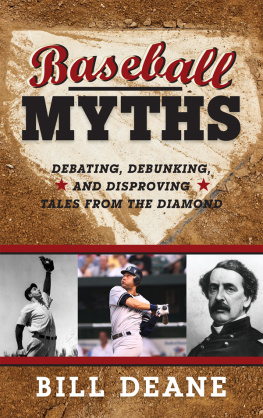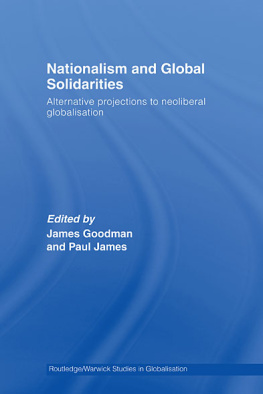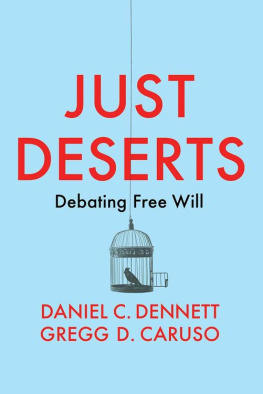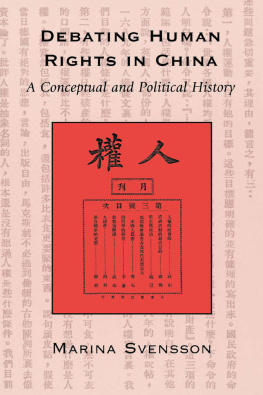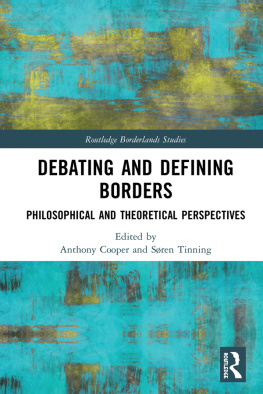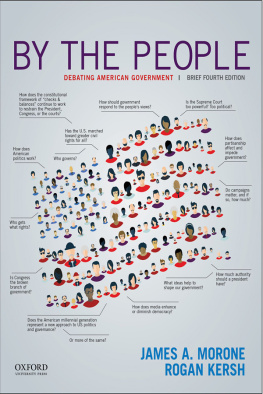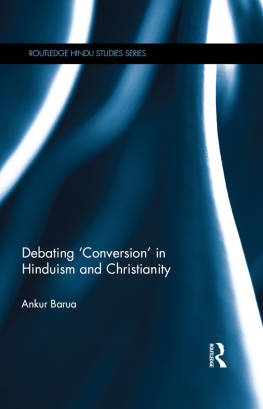R. L. Greene - Debating To Win Arguments: The Elements of Debating and How to Counter Arguments With Ease Using Logic
Here you can read online R. L. Greene - Debating To Win Arguments: The Elements of Debating and How to Counter Arguments With Ease Using Logic full text of the book (entire story) in english for free. Download pdf and epub, get meaning, cover and reviews about this ebook. year: 2017, publisher: Tru Nobilis, genre: Religion. Description of the work, (preface) as well as reviews are available. Best literature library LitArk.com created for fans of good reading and offers a wide selection of genres:
Romance novel
Science fiction
Adventure
Detective
Science
History
Home and family
Prose
Art
Politics
Computer
Non-fiction
Religion
Business
Children
Humor
Choose a favorite category and find really read worthwhile books. Enjoy immersion in the world of imagination, feel the emotions of the characters or learn something new for yourself, make an fascinating discovery.
- Book:Debating To Win Arguments: The Elements of Debating and How to Counter Arguments With Ease Using Logic
- Author:
- Publisher:Tru Nobilis
- Genre:
- Year:2017
- Rating:3 / 5
- Favourites:Add to favourites
- Your mark:
- 60
- 1
- 2
- 3
- 4
- 5
Debating To Win Arguments: The Elements of Debating and How to Counter Arguments With Ease Using Logic: summary, description and annotation
We offer to read an annotation, description, summary or preface (depends on what the author of the book "Debating To Win Arguments: The Elements of Debating and How to Counter Arguments With Ease Using Logic" wrote himself). If you haven't found the necessary information about the book — write in the comments, we will try to find it.
R. L. Greene: author's other books
Who wrote Debating To Win Arguments: The Elements of Debating and How to Counter Arguments With Ease Using Logic? Find out the surname, the name of the author of the book and a list of all author's works by series.
Debating To Win Arguments: The Elements of Debating and How to Counter Arguments With Ease Using Logic — read online for free the complete book (whole text) full work
Below is the text of the book, divided by pages. System saving the place of the last page read, allows you to conveniently read the book "Debating To Win Arguments: The Elements of Debating and How to Counter Arguments With Ease Using Logic" online for free, without having to search again every time where you left off. Put a bookmark, and you can go to the page where you finished reading at any time.
Font size:
Interval:
Bookmark:
TABLE OF CONTENTS
Debating To Win Arguments
The Elements of Debating, and How to Counter Arguments With Ease Using Logic
R. L. Greene
Copyright 2017 by Tru Nobilis - All rights reserved.
The following eBook is reproduced below with the goal of providing information that is as accurate and as reliable as possible. Regardless, purchasing this eBook can be seen as consent to the fact that both the publisher and the author of this book are in no way experts on the topics discussed within, and that any recommendations or suggestions made herein are for entertainment purposes only. Professionals should be consulted as needed before undertaking any of the action endorsed herein.
This declaration is deemed fair and valid by both the American Bar Association and the Committee of Publishers Association and is legally binding throughout the United States.
Furthermore, the transmission, duplication or reproduction of any of the following work, including precise information, will be considered an illegal act, irrespective whether it is done electronically or in print. The legality extends to creating a secondary or tertiary copy of the work or a recorded copy and is only allowed with express written consent of the Publisher. All additional rights are reserved.
The information in the following pages is broadly considered to be a truthful and accurate account of facts, and as such any inattention, use or misuse of the information in question by the reader will render any resulting actions solely under their purview. There are no scenarios in which the publisher or the original author of this work can be in any fashion deemed liable for any hardship or damages that may befall them after undertaking information described herein.
Additionally, the information found on the following pages is intended for informational purposes only and should thus be considered, universal. As befitting its nature, the information presented is without assurance regarding its continued validity or interim quality. Trademarks that mentioned are done without written consent and can in no way be considered an endorsement from the trademark holder.
ISBN: 978-0-9987936-5-8
LEGAL DISCLAIMER
Although the author and publisher have tried to ensure that the information in this book was correct at press time, the author and publisher do not assume and disclaim any liability to any party for any loss, damage, or disruption caused by errors or omissions, whether such errors or omissions result from negligence, accident, or any other cause.
INTRODUCTION
D ebating, we do it every day. Some of us are better at it than others. I hope you want to be one of those better ones. That is why you read this book, to gain an edge on improving the articulation of your opinions. Think back to a time when you had an opposing view of someone, and you knew you were right, but just couldnt say the right words to prove your point. Or when you went for a job interview. You had to convince your employer you are the best candidate for the job. Guess what, you were debating in an informal way for both of those scenarios.
Communication on varying views, which is frequently accomplished in a formal manner, is known as debate. When debating, you share facts, and or opinion to convince your audience or even the opposition that your arguments are more substantial.
Debating is a craft that is learnable. We all already have most prerequisites to succeed in the art of debating. It might be the case that some of your skills might require development to better prepare yourself to refute an argument. That is why Debating To Win Arguments is written; to assist ordinary folks, in achieving the extraordinary; when they enter into the magnificent craft of debating. Before we begin, I will give a disclaimer. This book may delve deep in the science of debating, but this is a necessary to hone this skill, as it will show to be beneficial throughout life.
CHAPTER 1
WHAT IS YOUR MOOT
M oot is sometimes used to state the topic open for discussion or debate. Either you agree on the moot, or you disagree with the moot. If you are opposing the moot then, you must provide your rebuttal of the moot.
Good right, you see learning about the craft of debating is not as hard as you had initially thought.
Oh, one quick fact though before we continue; never confuse mute with moot. Once it has anything to do with a discussion or a debate moot is the word used. Even if your ears transmit mute to your brain, tell your brain that your ears heard the wrong word. Mute deals with the silencing of something. For example, you put your television on mute, or you mute the stereo in your car, or you mute your cellular phone. So, moot we discuss, and mute Shhhh! it is quiet time, for you stopped the sound by muting the device or your statement have muted someone.
Debate, like other artistries, has jargons. Jargons are particular words used by certain groups, and if someone is not a part of that group, they might not understand the words used by the group members. To explain jargons in a different way, they are the secret codes a group uses that others might not understand, unless, a member of the group teaches them the meaning of the words. Or like in your case, you can purchase a book to learn about the groups jargon.
Therefore, the first step in the improvement of your prerequisites for debating is learning the jargon used by debaters.
Okay, it is time to learn how to talk the talk, and later you will learn how to walk the walk. I will share with some words or jargon you must know; because they are frequently used in debates.
I told you about moot earlier, but you will also hear some debaters use the word motion to refer to the statement or the topic of debate. Moot meaning has changed over the years, and in American English, it means Pointless. However, in British English, it still carries the meaning To debate. Always consider your audience before using moot. To be on the safer side you can opt to use the word motion. Resolution is another word some debaters will use to refer to the statement of value or policy being argued. Throughout this book the word motion will refer to the debates topic.
To conduct a debate, you must have more than one individuals involved. Two people can debate a motion, or you might have two teams debating a motion. One individual or one team agrees on the motion and is the affirmative or the proposition side. The side in disagreement is called the negative or the opposition.
The argument, the evidence presented in speeches, acting as proof of their support, will refute the oppositions statements with the affirmative or proposition side. With the negative or opposition, the argument is the evidence presented to disprove, and whatever evidence the affirmative presented.
Definition, this is stating the central word(s) or individual(s) in the motion . Interpretation explains the importance of the motion . Both the definition and the interpretation are usually outlined by the first speaker of both the affirmative and negative side.
The presentation is how the speakers demonstrate or display their arguments. Speakers, presentation are mainly through speech with gesticulations, tone, volume, pitch, and rhythm. Modulation can describe the tone, volume, pitch and rhythm of their voice.
Structure refers to the format of each speakers speech and how well each speakers argument correlates to his/her team members.
Protected time is the first sixty seconds and the last sixty seconds of a debate that the speaker must speak without interruption from the opposing speakers
Next pageFont size:
Interval:
Bookmark:
Similar books «Debating To Win Arguments: The Elements of Debating and How to Counter Arguments With Ease Using Logic»
Look at similar books to Debating To Win Arguments: The Elements of Debating and How to Counter Arguments With Ease Using Logic. We have selected literature similar in name and meaning in the hope of providing readers with more options to find new, interesting, not yet read works.
Discussion, reviews of the book Debating To Win Arguments: The Elements of Debating and How to Counter Arguments With Ease Using Logic and just readers' own opinions. Leave your comments, write what you think about the work, its meaning or the main characters. Specify what exactly you liked and what you didn't like, and why you think so.

